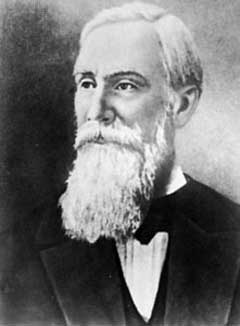A few weeks ago, the South African government announced that it was appointing a team to
reconsider the ban on the trade in rhino horn. In short, the idea is that SA could kill two birds with one stone by capitalising on what is effectively an extremely lucrative market. Since a single rhino horn is estimated to fetch $500,000 on the Asian black market, government stock piles of the stuff (from culling and thwarted poaching operations) could actually bring in substantial revenue towards conservation efforts.
Take things a bit further and you could easily argue that the ability to legally farm and "harvest" these animals generally would bring the same positive effects that hunting does for wildlife conservation. That is, it establishes a profit motive that incentivises the preservation of valuable animal species.
 |
| Save a horny friend? |
The libertarian journalist, Ivo Vegter, penned a provocative column shortly thereafter in support of the government announcement. Unsurprisingly, the essay captures some of the essence of free-market environmentalist thinking. Contrasting the fortunes of sheep with dwindling rhino numbers, he writes that the ban on rhino horn has undermined market incentives for managing these animals:
If they want rhino horn, let's sell them some
Sheep aren't endangered, because farmers farm them. They have a vested interest in making sure that they breed and stay healthy. The profit motive ensures that sheep are either kept alive (in the case of the woolly kind) or get killed less frequently than they get born (in the case of the eating kind).
Most economists would fully appreciate the logic of utilizing these types of incentives and market signals. I readily agree with the notion that ending the ban on rhino horn could be a boon for the rhino population. However, I do have problems with a subsequent paragraph:
Many environmentalists and armchair liberals are of the view that “we” merely need to educate the backward Orientals about the lack of medicinal qualities of rhino horn. This is rich coming from a group that routinely advocates the use of unproven herbal remedies. It is also supremely condescending. Imagine the Chinese coming to Africa and telling us to stop using muti, or better yet, instructing wealthy elites about the superstition that homeopathy works. We'd tell them to mind their own business and sod off back to China, and rightly so. Even if the Vietnamese and Chinese are wrong about rhino horn, re-educating half a billion people is as tyrannical as it sounds. And even the communists failed at that.
Apart from being wonderfully ironic in highlighting his own condescension -- something, it must be said, that Ivo does not lack for when discussing "greens" or "liberals" -- this paragraph merely serves to sidestep some very important ethical issues. The morality of selling unproven (say nothing of cruelly obtained) substances for human well-being cannot be simply disentangled from its economic outcomes. Indeed, a commentator draws attention to the matter by asking: "
How can it be it ethically conscionable to sell, at huge profit, a remedy that has been proven to have absolutely no efficacy? SA should peddle rhino horn to cancer patients . . . shall we also farm and sell African potatoes to people who believe they will cure AIDS? How about exporting a few of our local evangelists to exploit the gullible in exchange for miracle cures while we are about it?" (posted on Wed, 5 Oct 2011 at 12:12)
Ivo responds, but I rather think he draws a line on the wrong side of this issue. To quote the truism: Two wrongs don't make a right... And just because some new-age salesmen are able to peddle their snakeoil wares to Western consumers -- under false pretences and without accurate labeling -- does not provide satisfactory justification for encouraging (or even allowing) others to do the same. Moreover, suggesting that it
does, is simply to
argue your case by association.
In another sense though, Ivo is quite right because inconsistency can be a maddening thing. The difference between us, is that I would like to see consistency achieved via some form of standard regulation -- at the very least in terms of evaluating product claims and policing false advertising -- rather than a free-for-all. Given the vast asymmetries of information involved, these are the type of situations where Government (and, yes, civil society at large)
can play a crucial role in improving market outcomes; by providing accurate information on product effectiveness and regulating products that might otherwise thrive on fraudulent claims. More to the point, this why precisely we expect our doctors and drugs to be licensed in modern democracies, and why we have empowered state authorities to do so on our behalf.
===
I was reminded of all this today when I saw
this morning's xkcd strip, which might accurately be described as what happens when homeopathy gets into the book publishing business:
Sad, but true.
Also worth reading is the "tooltip text" that you can see if you hover over the image on the actual xkcd site. It explains the inspiration for this particular strip thusly: "
I just noticed that CVS has started stocking homeopathic pills on the same shelves with -- and labelled similarly to -- their actual medicine. Telling someone who trusts you that you are giving them medicine, when you know you're not, because you want their money, isn't just lying -- it's like an example that you'd make up if you had to illustrate for a child why lying is wrong".
[UPDATE: See this post.]
===
Let me leave you with one more story that has been making the rounds in the run-up to Halloween, which highlights that fine line between deception and self-delusion. A group of skeptics (not the climate change kind!) has been offering
a million dollar prize to anyone that can prove, under scientifically acceptable standards, that they posses paranormal abilities. Not content to see their money go unspent, the skeptics have publicly courted a number of high-profile TV psychics (e.g. Britain's
Sally Morgan) and invited them to take up the challenge.
And, would you believe it, none of these self-proclaimed psychics have responded to this wonderful opportunity to earn international fame and scientific respect... say nothing of the cool seven-figure cheque. I know, I know...
Unbelievable. The brilliant Derren Brown
sums up the situation thusly:
You’d think psychics would be very eager to prove they can really do it. There’s a million dollar prize fund to be won by any psychic who can show under reasonable and controlled conditions (which they can decide upon in conjunction with the scientists) that what they do is real. This is money that could be kept or given to charity of course, not to mention the likelihood of also receiving a Nobel prize and the ability to give the world vital new knowledge that would change us forever. Imagine that! If I woke up to find that I could really do it, I’d be a selfish and odd creature to offer it only to TV viewers and theatre audiences. I’d be out there, doing every test I could until the scientific establishment sat up and listened. You’d be forgiven for doubting my sincerity if I said I had better things to do.
 |
"I see hear dead people. LOL!" |
As far as "forcing" he likes of Sally Morgan to take the test, this seems to be most unsatisfactory solution and one that would impinge on any number of individual rights. However, there is the lingering sense that it is simply very wrong to charge grieving people for a service that amounts to little more than selling them outright lies at particularly vulnerable times in their lives. (Although, perhaps comfort is more important than truth in some circumstances?) In that sense, I'm glad she's being called out... Though I don't hold any hopes of either side being convinced.
THOUGHT FOR THE DAY: You often hear it said that economics is not a morality play. Perhaps there's some cold comfort in learning that, apparently, neither is the psychic business.
___
[*] I do wonder about the practicals implications of actually farming these animals, and whether doing so would actually lead to a collapse in poaching. After all, poachers would still be able to capture substantial "rents" through their illegal actions, so long as breeding and raising a fully grown rhino remains an expensive exercise. That, however, is a subject for another day.















